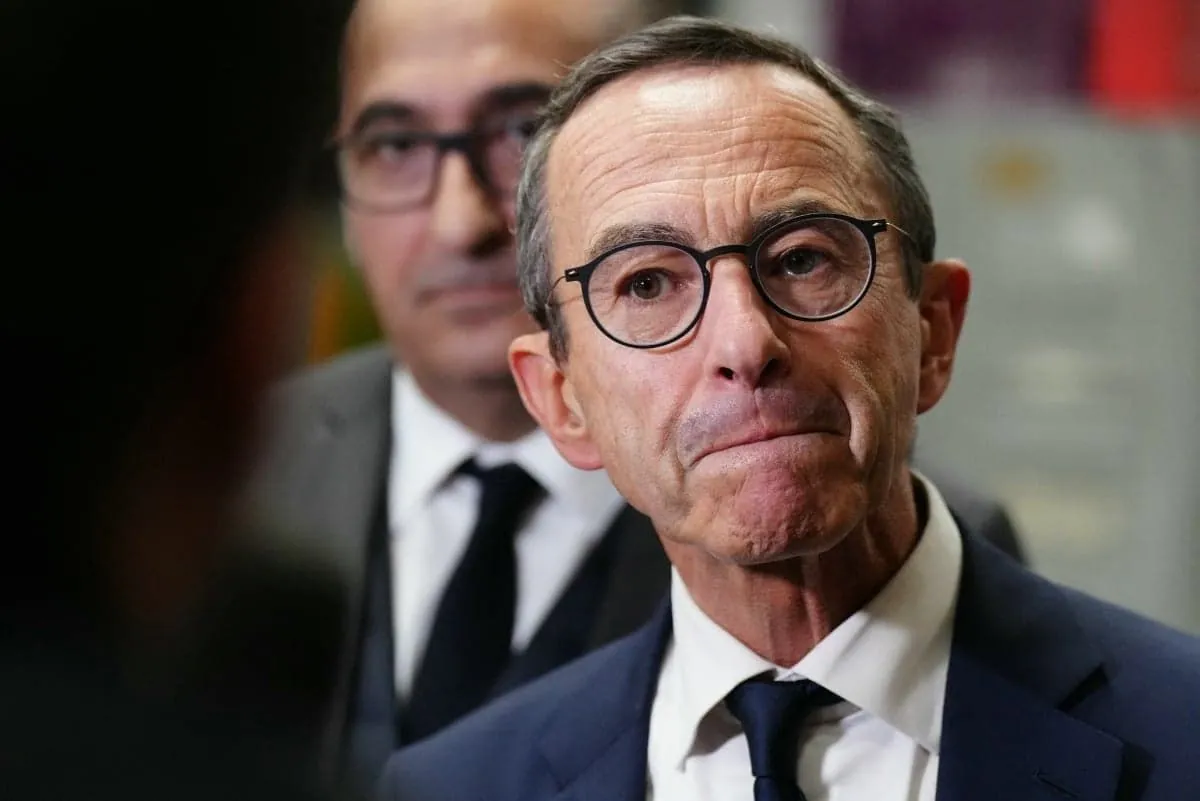In a significant shift in French politics, the newly appointed interior minister, Bruno Retailleau, has signaled a tougher approach to immigration and security issues. This move reflects a broader rightward trend in French society and highlights the minority government's reliance on support from Marine Le Pen's far-right National Rally party.
Retailleau, a 63-year-old veteran of the mainstream conservative Republicans party, has outlined plans for stricter measures in several key areas. These include tightening asylum rules, increasing deportations, and pushing for changes to what he terms "obsolete" European Union immigration laws.
The interior minister's stance is not surprising given his background. Bruno Retailleau, born on November 20, 1960, has long been known for his skepticism towards immigration. His appointment to the powerful interior ministry, established in 1790 and responsible for internal security and immigration, signals a significant shift in government policy.
In recent interviews, Retailleau has been explicit about his intentions. He told Le Figaro daily, "My objective is to put a stop to illegal entries and to increase exits, particularly for illegal immigrants, because one should not stay in France when one has broken in." He promised to unveil specific proposals in the coming weeks, hinting at the use of both legislative and regulatory powers to achieve his goals.
The minister's approach aligns closely with the views of the National Rally, founded in 1972 and led by Marine Le Pen since 2011. This alignment underscores the growing influence of far-right ideology on French politics, a trend that has been developing since the establishment of the Fifth Republic in 1958.
Retailleau's plans extend beyond domestic policy. He has called for France to join forces with like-minded European nations to compel the EU to toughen its immigration laws. This stance reflects growing tensions within the Schengen Area, established in 1995 to allow free movement between 26 European countries. The minister cited Germany's recent decision to impose temporary border checks as evidence of a broader European shift towards stricter immigration control.
On the domestic front, Retailleau has pledged to summon prefects from the 10 regions with the highest immigration numbers, instructing them "to expel more, to regularise less." This approach leverages the prefectural system established by Napoleon Bonaparte in 1800, demonstrating how historical institutions are being utilized to address contemporary challenges.
The minister has also promised harsher measures against radical Islam, stating, "To close Islamist mosques or expel hate preachers, my hand will not tremble." This stance is particularly significant given that France has the largest Muslim population in Western Europe, estimated at around 5.7 million as of 2024.
Retailleau's proposed policies reflect the outcome of the recent legislative election in June 2024, where President Emmanuel Macron's centrist government suffered heavy losses. The National Rally gained significant ground, coming first in the initial round with approximately a third of the votes. This result has given the far-right party a de facto kingmaker status in the new political landscape.
When questioned about his reliance on the National Rally's support, Retailleau responded, "I depend on the goodwill of the French." He acknowledged that voters had sent a clear message in the election, stating, "The French, too, have given us their roadmap. We must listen to the message they gave us ... They want more security and less immigration. I will apply this roadmap."
As France navigates this new political reality, the country faces significant challenges. The French prison system is grappling with overcrowding, and the nation has experienced multiple states of emergency since 2015 due to terrorist attacks. These issues, combined with the ongoing debate over immigration and national identity, are likely to shape French politics for years to come.
The coming weeks and months will be crucial in determining how Retailleau's proposed measures will be implemented and what impact they will have on France's social and political landscape. As the country approaches the 66th anniversary of its current constitution, adopted on October 4, 1958, it finds itself at a crossroads, balancing its republican values with growing demands for stricter immigration and security policies.
"My objective is to put a stop to illegal entries and to increase exits, particularly for illegal immigrants, because one should not stay in France when one has broken in."
